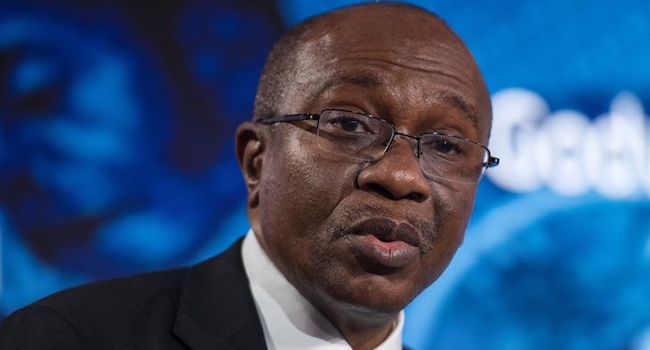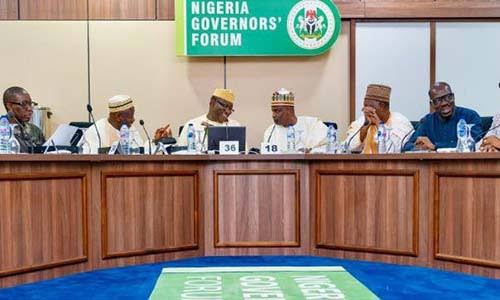
The Bureau of Public Procurement (BPP), Acting Director-General,
Olusegun Omotola, has called on Civil Society Organisations (CSOs) in Nigeria to brace up and monitor the expenditure the President Bola Ahmed Tinubu’s government has approved for the award of contracts for procurement of items for food security in the country.
Omotola who made the call at the Inception Meeting of the Civil Society Advocacy to Strengthen Anti-corruption Reforms in Nigeria (CASARN) by the African Network for Environment and Economic Justice (ANEEJ), revealed that the Tinubu administration is making huge investments in food security and other intervention programmes, pointing out that a lot of projects have been approved and the procurement process approved by the BPP.
The Civil Society Advocacy to Strengthen Anti-corruption Reforms in Nigeria (CASARN) project was designed by ANEEJ as part of the implementation of the second phase of the Rule of Law and Anti-Corruption (RoLAC II) programme which is being implemented by the International Institute for Democracy and Electoral Assistance (International IDEA) and funded by the European Union (EU).
Why stating that the expectation of the BPP is to see CSOs and other non state actors engage the procuring entities to ensure the contracts are awarded and the reliefs get to the masses, the Acting DG of BPP who was represented by Mokuolu Adesina, Head, Regulation & Database Department, stated that, “President Bola Ahmed Tinubu has so much intervention especially in the area of food security.
“I can tell you that a lot is being done in terms of food security. A lot of projects have been approved, the procurement process approved by the BPP, so we expect procuring entities to swing into action and convert these approvals into award of contracts that stands huge intervention in the area of food security.
There is so much data around approvals for food security interventions in the country as we speak, what we expect is engagement from non state actors to ensure that wherever those contracts have been awarded, which ever agency has awarded them, there should be proper engagement to ensure that those approvals translate to real award of contracts and those real award of contracts translate to real deployment and implementation of the contracts, so that the interventions of Mr President with regards to food security will be felt by the common man in the country.
“We are happy to work with CSOs, we have been open to you and we’re willing to work more with you and we want to work together to ensure the effectiveness of procurement intervention in the country”, he said.
Welcoming participants earlier, the Executive Director of ANEEJ, Rev. David Ugolor noted that the purpose of the inception meeting was to introduce the project to stakeholders and seek their collaboration to implement it and deliver on-set objectives.
Ugolor who was represented by Innocent Edemharia, ANEEJ Programme Manager, appreciated the CSOs and journalists present for their commitment to the shared mission of advancing transparency, accountability and anti-corruption reforms in Nigeria.
While pointing out that the effects of corruption are far-reaching, hindering economic progress, public service delivery and citizens’ trust in governance, Ugolor decried the seemingly capture of the judiciary by some powerful politicians to the extent that some former governors are resisting or evading arrest, just as some serving governors have even challenged the constitutionality of the law that sets up Economic and Financial Crimes Commission (EFCC), the Nigeria Financial Intelligence Unit (NFIU) and other anti-corruption agencies in court.
Appreciating the International IDEA and European Union for providing the platform and funds for the project, Ugolor enumerated the areas of engagement that ANEEJ and the other CSOs will focus on in the CASARN project in RoLAC 11, adding that; “We have therefore reached the conclusion that it is better to prevent corruption than to allow it to flourish before fighting the scourge.
“The negative effect of corruption has been acknowledged by successive government in Nigeria who openly made commitments to address the scourge and initiated specific reforms.
The project will build on such initiatives. In Edo State, the project will target key transparency, accountability and anti-corruption reforms initiated during the first phase of RoLAC programme.
“At the national level, interventions will target initiatives that will strengthen the management framework of Anti-corruption and Transparency Units (ACTUs) to revitalise and support the Independent Corrupt Practices and Other Related Offences Commission (ICPC) to repackage ACTUs for greater transparency. Advocate for the passage of whistle-blower protection bill.
Work to improve compliance to procurement data publication on the Nigeria Open Contracting Portal (NOCOPO) by federal MDAs, among other areas.Through CASARN project, we seek to address these challenges head-on by working closely with government agencies, civil society organizations, and the media to support critical transparency reforms and empower citizens to hold their leaders accountable.
“Some of the main target groups for the project include Federal and Edo State Government MDAs such as the Federal Ministry of Justice, ACAs especially ICPC, Office of the Head of Service Edo State, Technical Unit on Governance and Anti-corruption Reforms (TUGAR), Bureau of Public Procurement (BPP), Edo State Government, Edo State Ministry of Justice, other state level MDAs etc.
Others include women and youths focused groups, persons with disabilities, other CSOs working on anti-corruption, transparency and accountability, budget monitoring, procurement monitoring among others, faith-based organisations, religious and traditional institutions, and media.
“This project, which is part of the Rule of Law and Anti-Corruption (RoLAC II) Programme, aims to create impactful change through specific objectives: To strengthen anti-corruption reforms, to advocate for the finalisation and ratification of Edo State Integrity and Accountability Strategy (EDSIAS) and other transparency and accountability initiatives in the state including revisiting the FOI issue.
“We are more interested in corruption prevention and we believe that we can work together to make impact in this area. Our vision of a Nigeria where citizens can engage in a transparent and accountable governance system is ambitious but achievable. It requires all of us—government actors, non-governmental organizations, faith-based institutions, media, and community groups—to join hands, each bringing our unique strengths to this collective endeavor”.
In her opening remarks, the Edo State Coordinator of RoLAC, Ms Uche Nwokedi pointed out that RoLAC ll is a continuation of RoLAC l which started some initiatives like the FOI draft Bill, the Edo State Integrity and Accountability Strategy (EDSIAS) draft and urged the CSOs to leverage on their engagements with the governorship candidates during the run up to the Edo governorship election to initiate engagements with the incoming new government in the state to advocate for the passage of the FOI Bill, the adoption and operationalisation of EDSIAS by the government.
While assuring the collaboration of the Technical Unit on Governance and Anti-Corruption Reforms (TUGAR), the Head of TUGAR, Mrs Jane Onwumeri who was represented by Favour Eze, said the agency’s research, monitoring, and evaluation unit set up to respond to the critical need for a rigorous approach to policy-making grounded on empirical data collection and analysis, and in-depth country-specific diagnostics on corruption and related governance issues.
In a goodwill message, the Edo State Resident Commissioner, Independent Corrupt Practices Commission, (ICPC), Mrs. Premo Ayaoge assured of the collaboration of ICPC in Strengthening anti-corruption reforms.
She disclosed that some of the provisions of the ICPC Act are due for amendment and have been sent to the National Assembly and pleaded that such proposed amendments should be included in the CASARN advocacy programme.
According to her, “ICPC is working with big organisations like ROLAC and others on how to strengthen anti-corruption reforms in Nigeria just like we’re doing here today.
While we are talking about these laws, let’s us also be talking about measures to be put in place to implement these laws such that there will be no scape goat, no sacred cows and that nobody is above the law”.
The Economic and Financial Crimes Commission (EFCC) and Edo State Procurement Agency (EDPA) represented by Mr. William Oseghale and Mrs. Lucy Omoruyi respectively assured of the collaboration of their various agencies in the implementation of the CASARN project.
Present at the inception meeting were members of CSOs, media, faith based organisations and community based organisations and they all gave their commitment to work with ANEEJ to realise the objectives of CASARN project.

 2 hours ago
5
2 hours ago
5








